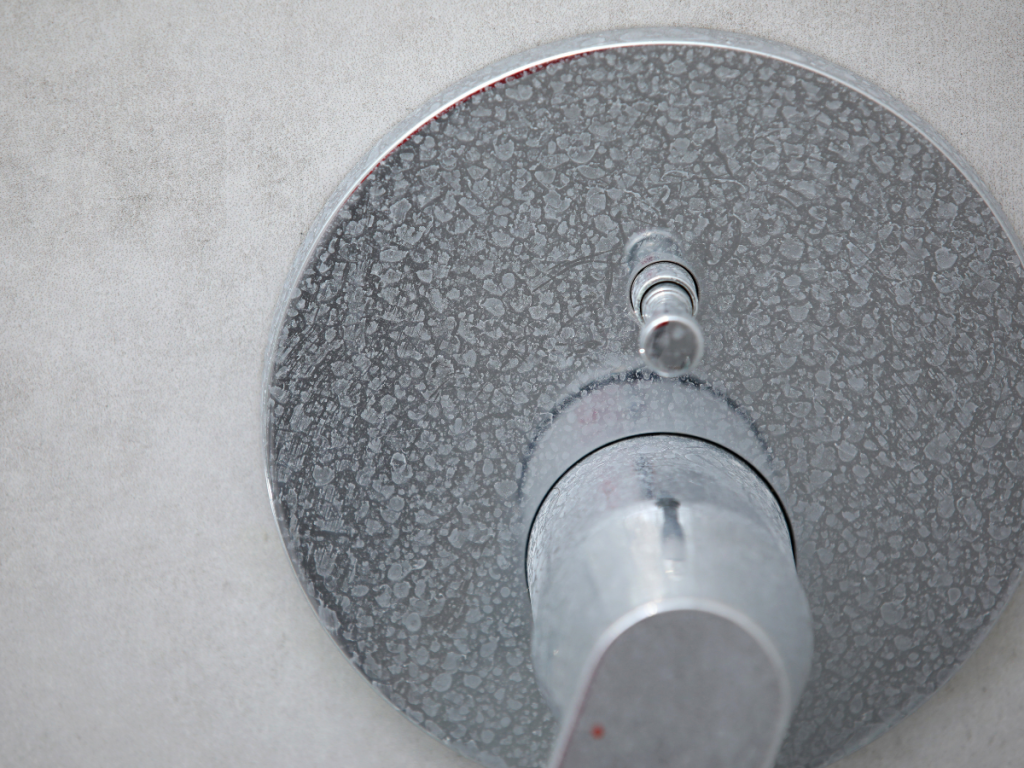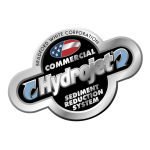Have you ever noticed a scaley, white or green buildup around your faucets that you can’t get rid of no matter how many times you clean it?
Scale buildup, or limescale, is a common problem that affects many water systems, appliances, pipes, and fixtures. It can reduce the efficiency, performance, and lifespan of home appliances, and it doesn’t look great.
In this article, we’ll cover the causes of limescale and how you can prevent it in your home plumbing system.
What causes limescale?
Limescale can build up as a result of mineral precipitation from hard water, which contains high levels of calcium, magnesium, iron and other dissolved minerals that precipitate over time. These minerals can form deposits on surfaces that come in direct contact with water, such as pipes, faucets, showerheads, boilers, heaters, dishwashers, washing and ice machines and kettles.
Unfortunately, scale buildup isn’t limited to appliances and can also be found on both your scalp and hair due to hard water’s interaction with sweat, dead skin cells, and any hair products used.
In your plumbing and pipework, the effects of scaling can vary widely, depending on factors like mineral type and quantity present, temperature and pressure levels, pH balance levels, flow rates, the material used and design features of the equipment.
Effects of scaling in your plumbing system and home
Many of our clients often ask us, “What causes limescale buildup in my water appliances?” Missoula is a region with hard water so this is a frequent problem for homeowners. Here are some of the effects limescale can have on your plumbing and pipes, and health.
Reduced water flow and pressure
Scale build-up in pipes and fixtures can clog them, restricting how much water can pass through. This can affect home and business water supplies and increase energy costs associated with pumping water supplies.
Increased corrosion and damage
Scale buildup can act as a barrier between the water and metal surfaces of pipes and equipment. This prevents them from being protected by corrosion inhibitors or coatings.
This increases the risk of corrosion and damage to the metal parts, leading to leaks, cracks, ruptures, or failures.
Decreased heat transfer and efficiency
Scaling can insulate the heat transfer surfaces of boilers, heaters, and other appliances that use hot water or steam, reducing their ability to heat water efficiently. This results in higher energy usage and costs, poor performance, and an increased need for maintenance and repair.
Impaired quality and safety
The quality and safety of your water and the fixtures and products that use it can be affected by a buildup of limescale in your plumbing system. For example, the buildup of limescale can contain bacteria and pathogens that can cause infections or diseases. It can also alter the taste, odor, color, and clarity of the water or beverages made with it.
Limescale can also damage or stain any fabrics or dishes washed with it, which can be a hassle for many homeowners. It can also become costly, having to rewash, and in some cases replace, dishes and clothing.
Irritated skin and hair
Your skin and hair can also suffer due to limescale buildup by drying them out, or making them dull and frizzy in appearance. This can also cause scalp buildup, which can cause flakes, itchiness, inflammation, and infection.
If you suspect that you have scalp buildup, it’s important to see your healthcare provider immediately to avoid further health issues.
5 ways to prevent limescale buildup in your home
If left untreated, limescale can be a nuisance to your family, and your home. At Plumb-Tech, we know that the best way to treat a problem is to prevent it from happening in the first place.
1. Installing a water softener
Water softening is a process that removes or reduces the hard minerals from your water by exchanging them with sodium or potassium ions. It can help significantly reduce and even eliminate scale formation by making the water less likely to precipitate minerals.
Water softeners use ion exchange and salt-based devices that are installed at the water main or on individual pipes.
2. Water conditioning
Water conditioning alters the water’s physical or chemical properties without removing or adding any substances to it. This can prevent or reduce limescale formation by changing the crystal structure or charge of the minerals in your water, making them less likely to adhere to surfaces.
Water conditioning can be done by using magnetic, electric, electronic, or catalytic devices that are installed at the point of entry or use of your water.
3. Water filtration
Water filtration is a process that also removes or reduces impurities from your water by passing it through a porous medium or membrane. This can help prevent scale formation by removing some minerals or other substances contributing to limescale buildup.
This process uses carbon filters, reverse osmosis systems, distillers, and other devices installed at your water’s point of entry or used in your home.
4. Water treatment
Adding substances to your water to modify its characteristics or improve its quality is called water treatment. Water treatment prevents scaling by changing the pH level or adding corrosion or scale inhibitors to your water.
To treat your water, you can use chemical feeders, dosing pumps, or other similar devices. These devices should also be installed at your water’s entry or usage point in your home.
5. Equipment maintenance
Maintaining the fixtures and other parts of your plumbing system that are prone to scale buildup is a great preventative measure. It is done by cleaning, flushing, descaling, or even replacing parts or components of your plumbing that are susceptible to buildup.
While maintenance can be done yourself with a little DIY knowledge and the appropriate cleaners and tools; however, we strongly recommend leaving any plumbing maintenance to a reputable plumbing company to ensure quality work and to avoid any problems.
By understanding the causes of scaling in your plumbing and applying the above methods to prevent or reduce it, you can rest easy knowing your water is clean, clear, soft, and safe.
Call Plumb-Tech and eliminate limescale for good.
All of the above methods are great ways to help you deal with limescale in your home. We also recommend consulting a professional like our trained plumbers here at Plumb-Tech to help with any scaling issues.
We understand how crucial clean, safe water is to you and your family. Don’t wait; contact Plumb-Tech today to ensure quality water in your home.





